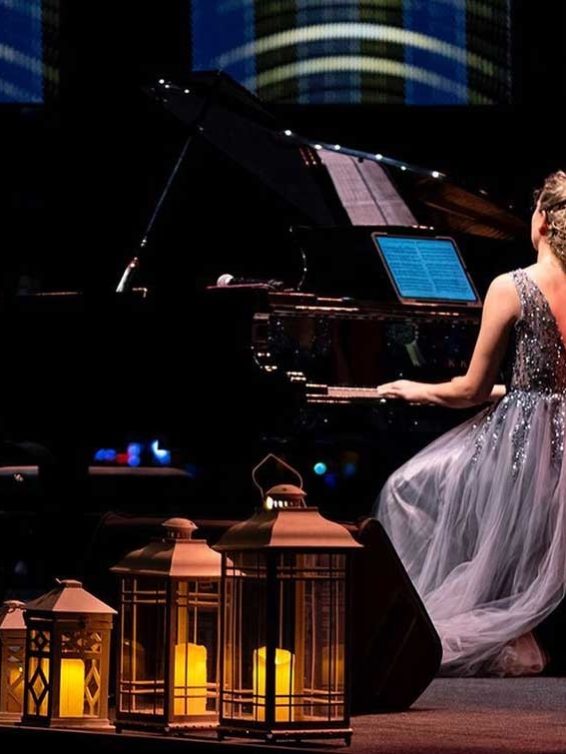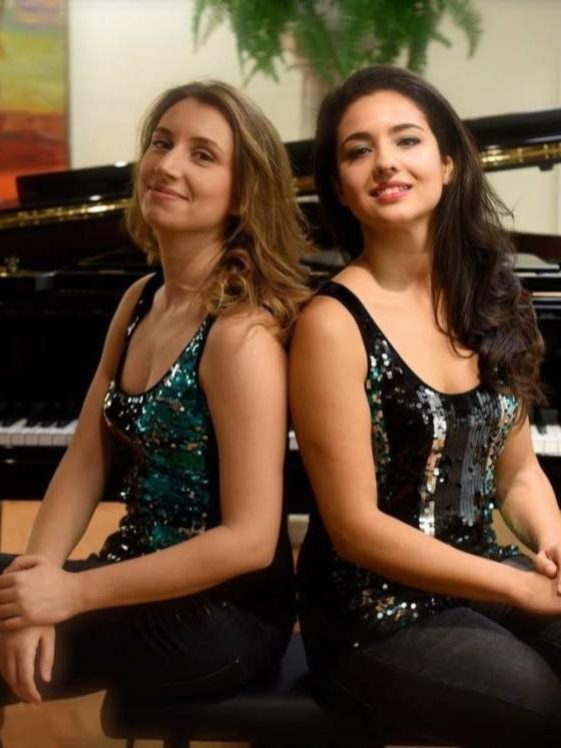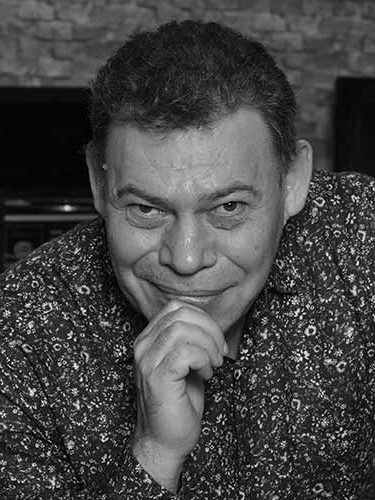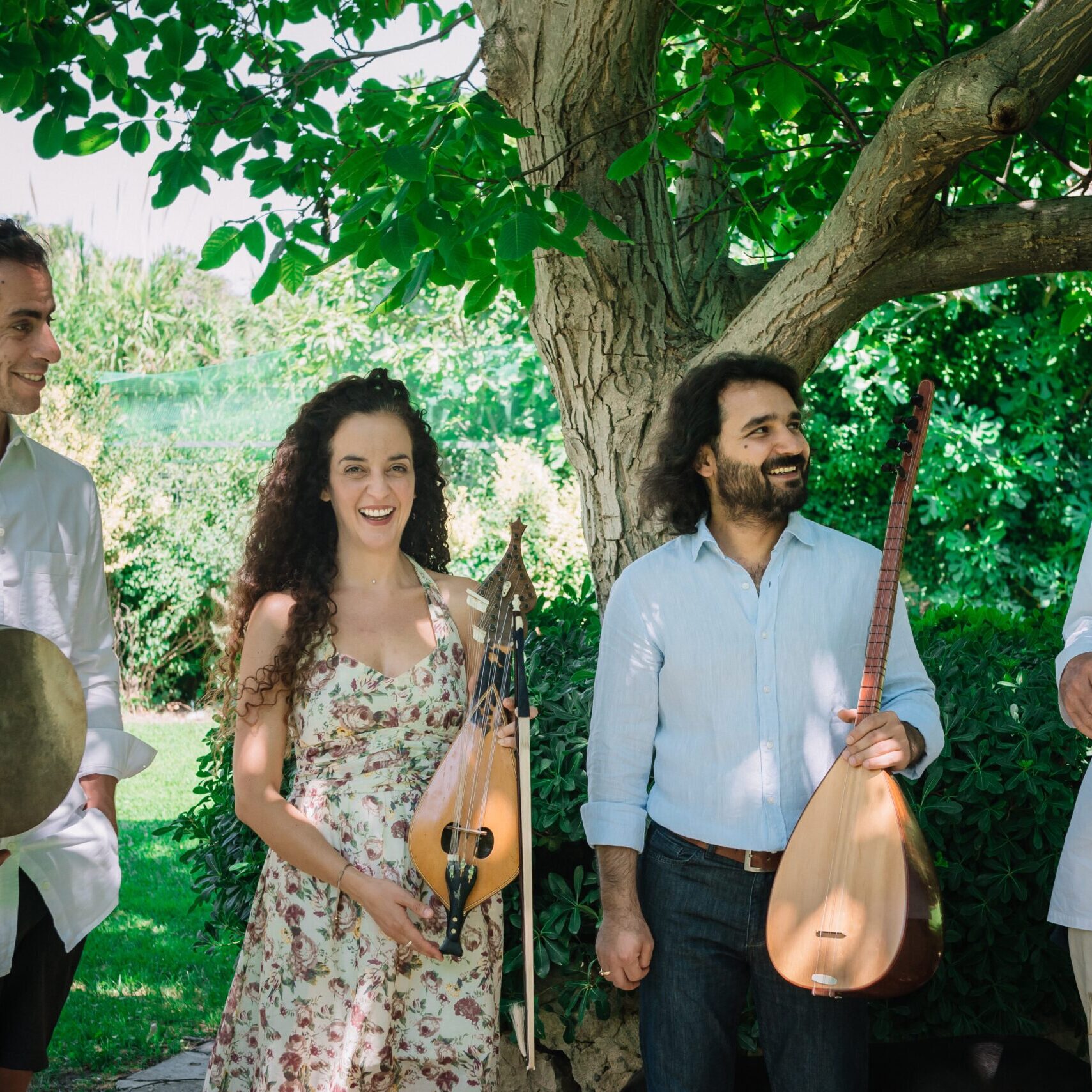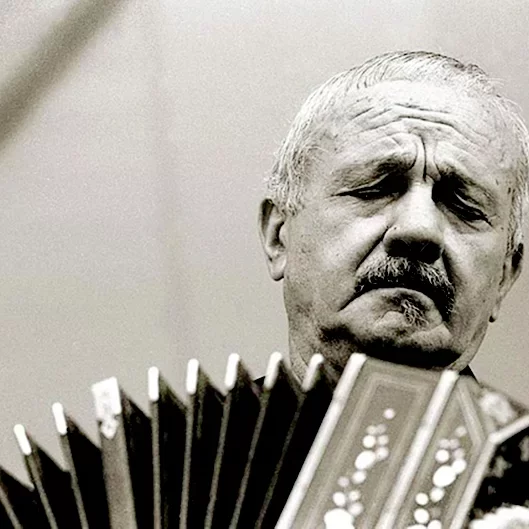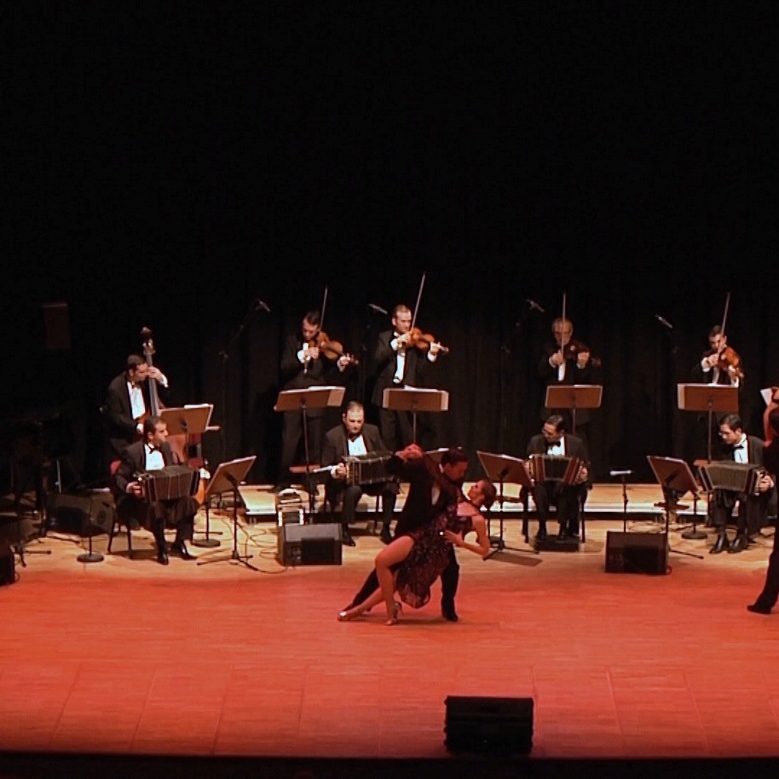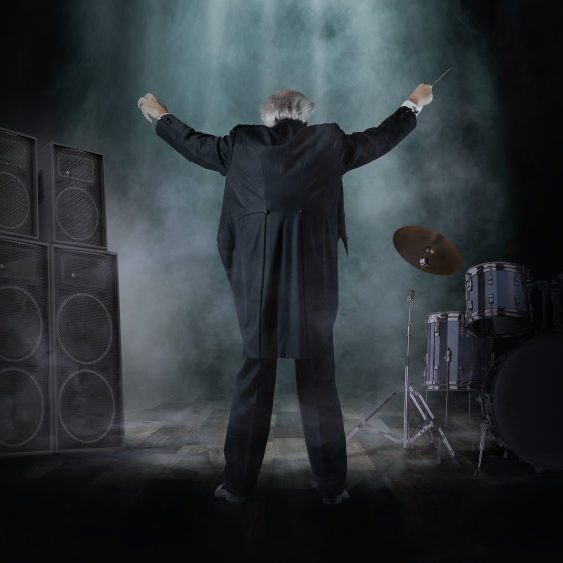Janus in Orient
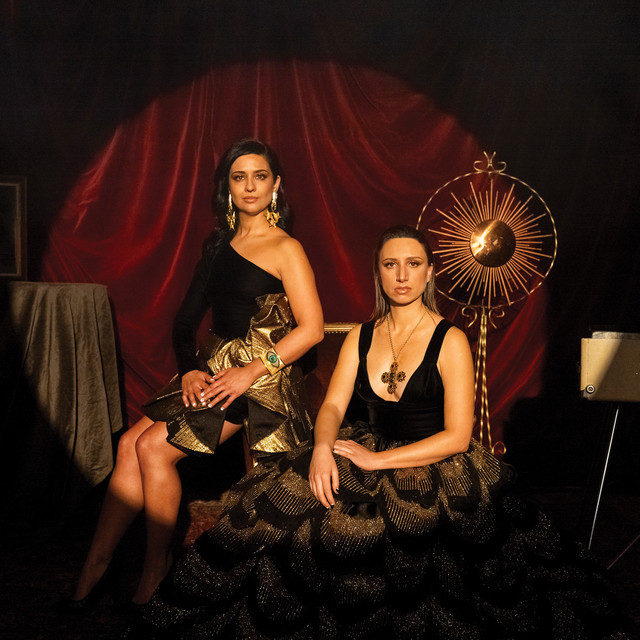
Ilyas MIRZAYEV
In a work encompassing a combination of eastern and western cultures, Mirzayev illustrates the richness and diversity of musical styles of the Turkic people within the traditional norms of clasical music. From the mystic sacred Tasavvuf music, the oriental nay flute takes the solo part; clarinet, violin and the original drum darbuka take over the main part to illustrate the joyful folklore of the Balkan Peninsula and of the Black Sea coast of Anatolia. Classical music is represented by twp pianos and the organ, which symbolizes the church music of the Gregorian era. Born in Azerbaijan and ex-student of Alred Schnittke, Ilyas Mirzayev wtote this composition in two versions: a chamber music version in the form of a septet, an a chamber orchestra version with five solo instruments.
The work was commissioned by the well-known piano duo Güher and Süher Pekinel and performed in 2005-06 at the Hamburg, Berlin Philharmonic, London Queen Elisabeth Hall and Istanbul Hagia Eirene Museum concerts, under the direction of London Mozart Players and Deutsche Kammerorchester, conducted by Howard Griffiths and Paavo Jarvi to critical acclaim. Since it has not been able to be performed since then for several reasons, is now in the hands of Duo Blanc & Noir (Selin Şekeramber and Yudum Çetiner) to meet with the concert audience at home and abroad.
Ercan IRMAK (nay flute)
Born in 1956, Ercan Irmak has retired from the Modern Folk Music Ensemble in Istanbul and is one of the best nay players in Turkey. Nay concertos have been written especially for him which he has performed in Europe and Asia to critical acclaim.
EAST meets WEST
“Janus in Orient”, A musical itinerary from Central Asia through Turkey
By G.S.P.
The roots of Turkish people are to be found mostly in Central Asia. Turks were nomadic populations influenced by various religious traditions including Shamanism, Buddhism, Taoism, Christianity and Judaism, until they adopted Islam in the 13th century. Turks founded the Ottoman Empire, which ruled for seven centuries over a vast area including the Balkans, North Africa, the Black Sea, Anatolia and the Middle East. All these corresponding cultures built a rich mosaic still present in today’s musical traditions and inspirations which bear, through the Silk Route, notable influences from East to West.
In this context, melodies from the Balkan countries such as Albania, Macedonia, Romania, Bulgaria, Bosnia-Herzegovina, Anatolia, Israel (Kletzmer), Greece (Rebettiko) and the Caucasus region are, basically, in close musical relationship with each other, which sometimes make it difficult for even a well-trained ear to identify the precise origin of the music being heard. Melodies differ from each other mostly through varied rhythmic and harmonic elements.
The cross influences within various eastern and western cultures on respective musical traditions may go well beyond the boundaries of geographic and historic political frontiers. In this regard, we believe, for instance, that the influences of shamanistic and mystical “sufi” rituals on Stravinsky’s Sacre du Printemps are, arguably, very much at the root of the rhythmical and melodic structure of this major work. Mirzayev’s composition Janus in Orient is also very much inspired by the same mystical “sufi” music.
All these strikingly similar features show us how much music fulfills a function of acting as a deep mirror reflecting common underlying links between different musical understand, religions and cultures. It is most satisfying to see that today’s European composers are deeply influenced by those sources. Even top European classical music festivals like the Proms, the Lucerne and Vienna festivals have made the connection between “East and West” the central themes of their festivals.
Thus at the beginning of this new century, musicians have perhaps an unexpected role in showing the path for people to meet in what is, after all, a common universal heritage.
Duo Blanc & Noir
Piano duo meet their audiences on world stages with their extraordinary repertoire ranging from classical music to jazz, Turkish traditional music to world music!
After studying solo piano at the Moscow Tchaikovsky Conservatory, the Lausanne State Conservatory and the Munich State Conservatory, the pianists completed their chamber music studies at the Stuttgart State Conservatory with the world-renowned piano duo Prof. Hans-Peter and Prof. Volker Stenzl, becoming the first Turkish pianists to complete the “Two Piano Department”, a lasting achievement for Turkey in the history of classical music.
The duo, who received the “Special Jury Award” as the only Turkish pianists participating in the “Ibla Grand Prize World Music” competition held in Italy, gave concerts in Turkey, Germany, Spain, Croatia, Estonia, Austria, Egypt, Italy, France and America with their albums “The Essence of Piano Duo”, “HANDS” and “OUTSIDE”, which they released in Germany in the following years. They were invited to international festivals such as Piano City Milano, Donau Oberschwaben Music Festival, Fete de la Musique Lausanne, FIMU Belfort, Made in Stuttgart, Marsyas Culture, Art and Music Festival, Carl Orff Festival and gave concerts in many countries.
They gave concerts with Ankara Presidential Symphony Orchestra, Izmir Symphony Orchestra, Anadolu University Symphony Orchestra, Izmir Chamber Orchestra. With different projects, they gave concerts in important stages of Germany such as Stuttgart Philharmonic, Munich Philharmonic, Bamberg Philharmonic, Füssen Festspielhaus, Schloss Dillingen, Stuttgart Philharmonic and Berlin Konzerthaus.
As part of their US tour, they organized concerts and master classes at the Greenspring International Music Academy, Virginia Commonwealth University and James Madison University.
The duo arranged Fazıl Say’s world-renowned works “Kara Toprak”, “Kumru” and “Alla Turca Jazz” for two pianos and four hands and shared these works with musicians through Schott Publishing House, one of the most prestigious music publishing houses in Germany.
IMAGINE, which is composed of their own compositions, is a lullaby album that aims to direct children to quality and polyphonic music, following their albums consisting of works they have interpreted and adapted from classical and contemporary music repertoire.
Their latest album It’s Electric, recorded for the first time in the world by a piano duo with Fender Rhodes pianos, is an innovative and extraordinary album. The album and the video clip they shot for J.S.Bach’s Tocatta, directed by Ecem Lawton, won the best classical music video and music awards at international festivals and competitions such as Munich Music Video Awards, International Sound Music Awards, Onyko Film Awards, Dubai Independent Film Festival, Euro Music Video Awards, Rome Music Video Awards, and LNDN Music Video Awards, International Sound Music Awards.
All Blanc & Noir’s albums are available on digital platforms.
Media
Performances
Listen
Yanus in Orient
Yanus in Orient finale

